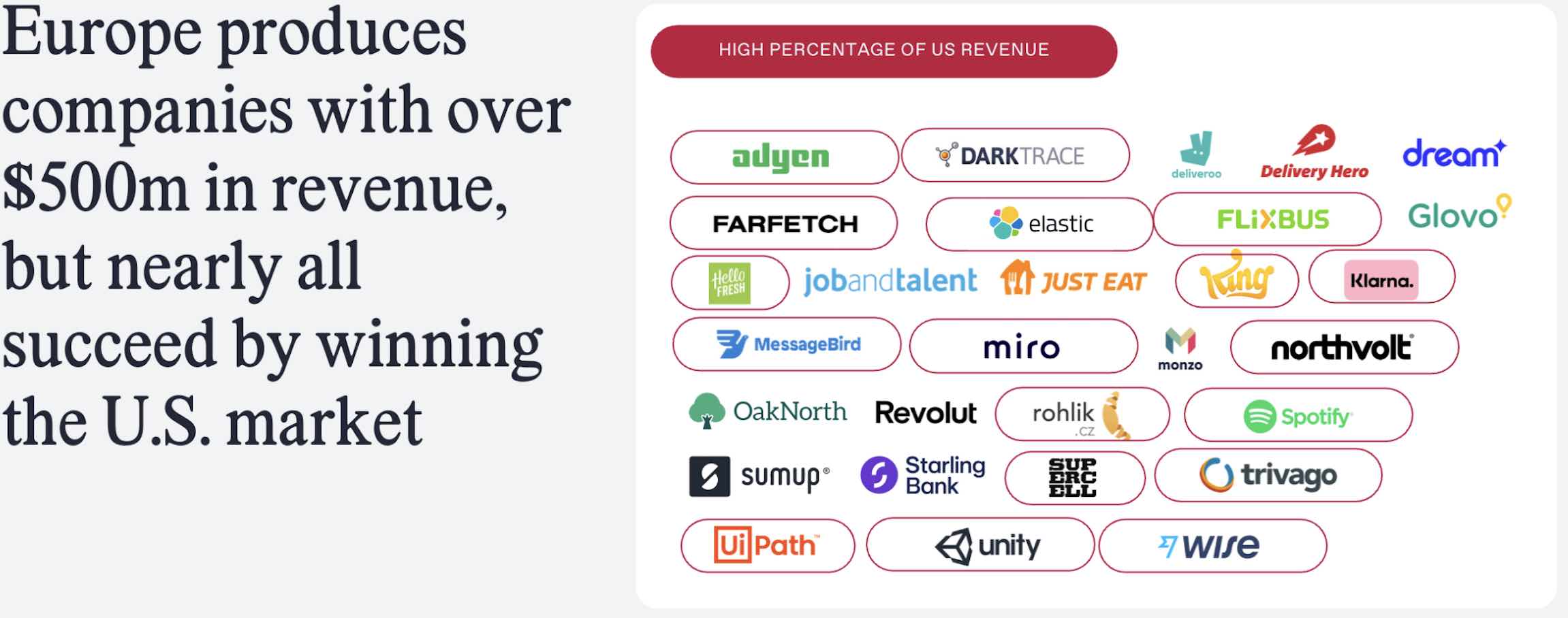With under 2 million people, a landmass that’s half the size of Greece, and a recent history of communist rule, Latvia doesn’t have textbook foundations for building world-leading businesses. But building a world-leading business is exactly what Latvia’s Printful did. In 2021, the on-demand printing startup was valued at over $1 billion, making it the country’s first-ever unicorn.
To reach the local landmark, Printful took an international route. But rather than focus on its home continent of Europe, the company set its sights on the US.
“We wanted to make something big — and to this day, there is no bigger market than the United States for technology companies,” Davis Siksnans, the co-founder and former CEO of Printful, told TNW at the TechChill conference in Riga, Latvia, earlier this year.
“We’re glad that we had some people from Latvia who were willing to uproot themselves and move to the United States and work there on the ground.”
It’s a move that Hussein Kanji wants more European entrepreneurs to make. As a partner at Hoxton Ventures, a VC investor based in London, Kanji has backed some of the continent’s most successful startups, including the unicorns Deliveroo and Darktrace.
His firm selects these businesses because it believes they can become category-defining companies. To reach this level, Kanji wants more founders to look stateside.
“Once you’ve built something and validated that it’s actually good relative to its peers, you should be focused on the US market as early as possible — you’re going to build a bigger company,” Kanji told TNW.
As a Stanford University graduate who’s worked for both startups and tech giants in the United States, Kanji has extensive experience with the rewards on offer in the country. He also has the data to substantiate his views. In new research, Hoxton Ventures found that nearly all European startups with over $500mn in revenue have succeeded by winning the US market.

For European startups, the US market has numerous attractions. It’s got more customers, more capital, and more talent. There’s also the powerful network effects that fizzle across Silicon Valley.
The allure was irresistible for Printful. In classic startup style, the company’s founders built their early business from a garage in California.
“We leveraged a physical presence in the United States, which gave us immediate credibility with the customers there,” Siksnans said.
The move soon paid off. After four years of focusing on the US, Printful reached $46mn in revenue.
Still, not everyone is willing to migrate. Many European founders prefer to stay closer to home for familial, social, or patriotic reasons. Others are concerned about the risks of relocating.
“The US is way more expensive, way more competitive, and you’re way more likely to fail… but if you win, you win so much bigger,” Kanji said. “And we don’t care so much about the failure side — we care about the winning side.”
Risk and reward
Companies from larger countries are often reluctant to cross the Atlantic because they’re confident that their home market is already big enough. Startups from smaller countries, meanwhile, may prefer to target another European nation for its early European expansion. Geographical proximity, cultural connections, and personal relationships can make the local moves more alluring.
When these arguments are made to Kanji, he advises them to start in the US and then return to Europe when they’re on a winning streak. To his chagrin, they don’t always agree.
“The majority of the time, we probably fail to convince them because a lot of people are minimizing risk, and they have more close relationships in Europe,” he said. “But our view is we can help plug in some of the relationships.”

He also reassures the doubters that Silicon Valley is very accommodating towards expats and new faces. The majority of tech workers in the region are foreign-born, and around half of its ‘unicorn’ startups were founded by immigrants.
It’s also a place that’s accustomed to power players suddenly emerging from out of nowhere. When Mark Zuckerberg was creating a creepy hot or not clone at Harvard, who could have predicted that he would soon transform the online world?
Such developments are hard to predict, which has encouraged the Valley to welcome new people and ideas. The cofounder of Stripe, for instance, moved there when he was still a teenager after his company had failed to draw financial support in his home country of Ireland. Nine years later, he was the youngest self-made billionaire in the world.
“The Valley is very accommodating towards new stuff — and the new stuff doesn’t have to just be American,” Kanji said. “It could be Swedish, it could be Estonian — but you have to be physically there, building those networks and relationships. If you’re far away, it’s a little less accommodating, because there’s still this bias in the Bay Area that the good stuff gravitates to the Bay Area.”
Taking the first steps
Kanji doesn’t advise leaving Europe as soon as an idea emerges. Startups first need to establish their initial product market fit, determine its worth, and get feedback. Once the value has been established, the founder can move to the US. The rest of the team, however, is often better built at home.
One drawback of the US is the high salaries of tech workers. There are also always bigger companies who want to poach the top talent. In Europe, these costs and risks are lower.
At Printful, the best balance was dividing roles across regions. While the startup’s founders established a presence in the US, they built their team of developers, designers, and marketers in their home region.
“Very quickly, we learned that even though the target market was the United States, we didn’t necessarily need all the teams on the grounds in the US, because we have a good selection of talent here in Latvia,” Siksnans said.
A Printful founder, however, remained in the US. It’s an approach that has often yielded impressive results.
Phill Robinson, a former Salesforce CMO and CEO of Dutch software giant Exact, has also experienced the benefits. Robinson recently returned to his home country of the UK to found the startup platform Boardwave, which aims to replicate Silicon Valley’s network effects in Europe. Yet he acknowledges that startups targeting the US still need a leader on the ground.
“You’ve got to have your founder move to the States, or a significant part of your management team,” Robinson told TNW. “You’ve got to understand the product market fit, because it might be slightly different. You can’t just rock up with a bunch of salespeople and keep selling more products.”

At the same time, Robinson insists that moving to the US isn’t the only option. He notes that access to capital is improving and that startups are now scaling more quickly. A recent report from Dealroom made similar observations.
The study found that Europe now attracts 20% of global VC funding — compared to under 5% two decades ago — and more than a third of the global investments at early-stage. The continent’s flock of unicorns, meanwhile, has grown by 88% since 2014. In the US, they’ve only increased by 56%.
Overall, however, the biggest opportunities to scale remain in the US. For Kanji, European founders with ambitions to be global leaders will often face a tricky choice: Stay home and minimise the risk of failure, or move to the US and maximise the chance of success.
Get the TNW newsletter
Get the most important tech news in your inbox each week.






